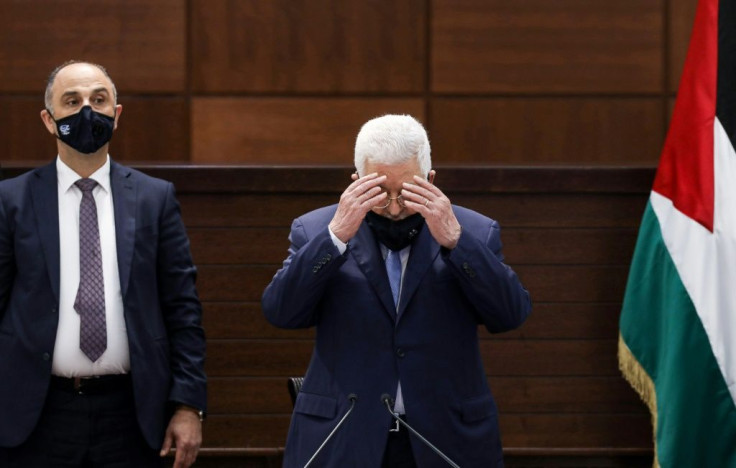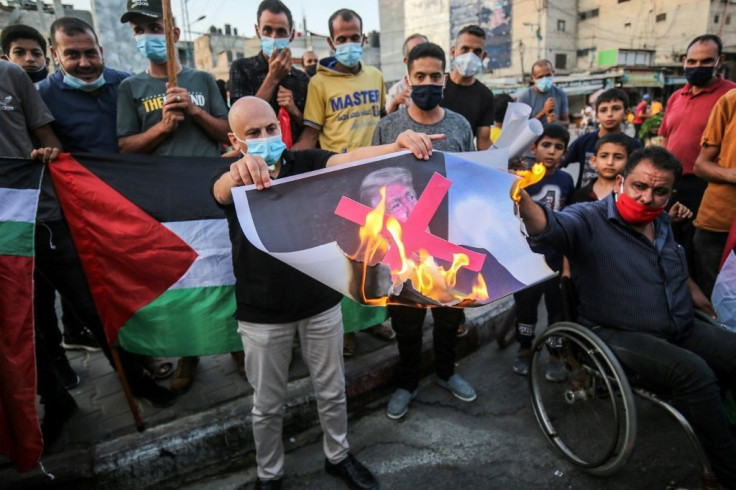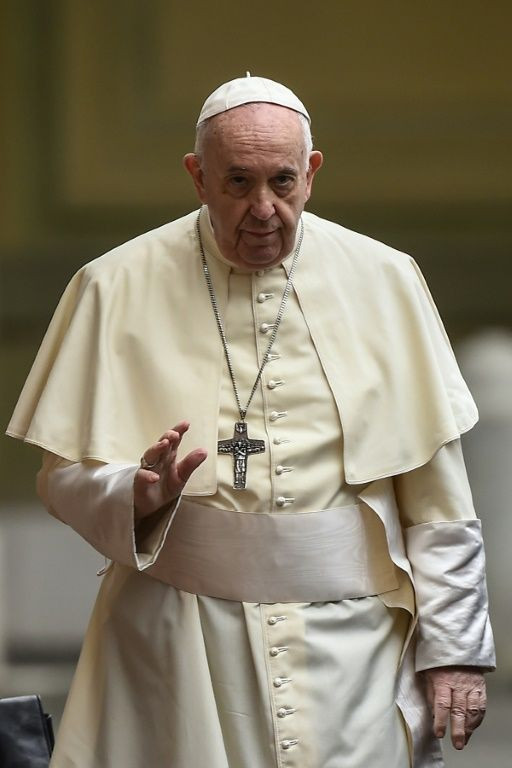Abbas Seeks UN Mideast Conference After Arab Deals With Israel
Palestinian president Mahmud Abbas appealed Friday to the United Nations for an international conference on the Middle East in 2021, hoping for a new start after US elections and the milestone of Gulf Arabs' recognition of Israel.
In an address to the General Assembly, Abbas asked Secretary-General Antonio Guterres to convene the meeting on the Palestinian issue "early next year" and bring in "all relevant parties."
"The conference should have full authority to launch a genuine peace process based on international law," Abbas told the virtual General Assembly in a recorded address.
"It should aim to end the occupation and grant the Palestinian people their freedom and independence in their own state along the 1967 borders with East Jerusalem as its capital and settle final-status issues, notably the refugee question," he said.

Abbas made his appeal amid concerns among Palestinians of dwindling support in the Arab world for their decades-long campaign for an independent state.
The United Arab Emirates and Bahrain earlier this month agreed to recognize Israel, a major coup for the Jewish state and diplomatic win for US President Donald Trump.
The two Arab states, while saying they still support a Palestinian state, share the concerns of Israel and the United States about neighboring Iran.
Abbas said: "It is delusional to think that the Palestinian people could be sidelined."
"You should all know that there can be no peace, no security, no stability or coexistence in our region without an end to the occupation and without a just and comprehensive solution to the Palestinian question," he said.

The Palestinian Authority has refused diplomatic efforts by Trump due to his administration's staunch advocacy of Israel.
If Trump loses in November 3 elections, the conference sought by Abbas would take place under a US president Joe Biden, who is also a supporter of Israel but has vowed to promote a two-state solution.
The Palestinians have also agreed to hold elections in early 2021 as the shock of the Gulf Arabs' moves sparks new talks of reconciliation between Abbas' Fatah movement and Hamas, the Islamist militant group that runs the Gaza Strip.
Israel's ambassador to the United Nations, Gilad Erdan, said the 84-year-old Abbas' speech "showed more than anything else that his time is up."
"He understood that the peace agreements we have signed shattered the Palestinian veto over peace agreements with the Arab world and what was revealed to all was Palestinian refusal," he said.

Pope Francis, addressing the world body for the first time in five years, distanced himself implicitly with Trump's "America First" ideology.
"At present we are witnessing an erosion of multilateralism, which is all the more serious in light of the development of new forms of military technology," he said in his video address.
"We need to break with the present climate of distrust," he said.
He said the world faced a choice between multilateralism and a path towards nationalism, protectionism and isolation.
"It excludes the poor, the vulnerable, and those dwelling on the peripheries of life," Francis said, warning that such a path would be "detrimental to the whole community."
The pontiff also called for a relaxing of international sanctions, which he called harmful to civilians around the world.
The UN General Assembly each year packs 10,000 world leaders, delegates and observers into a few congested stretches of New York, which becomes a hub for face-to-face diplomacy.
Due to the novel coronavirus pandemic, this year's summit is almost entirely virtual, with leaders sending in recorded addresses.
The summit has nonetheless been characterized by angry exchanges between the United States and China.
Trump used his speech on Tuesday to demand action against China over the "plague" of Covid-19, which he blamed on Beijing as it initially covered up news of the disease.
China's ambassador to the United Nations hit back by questioning the competence of the United States, which has suffered the world's highest death toll.
© Copyright AFP {{Year}}. All rights reserved.



















